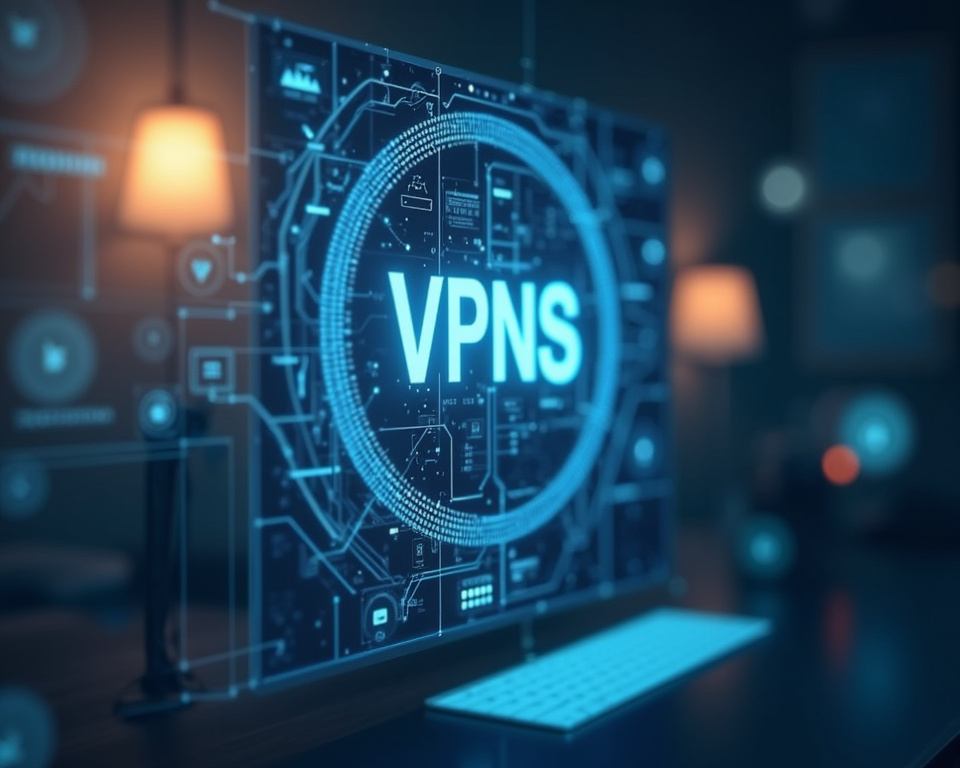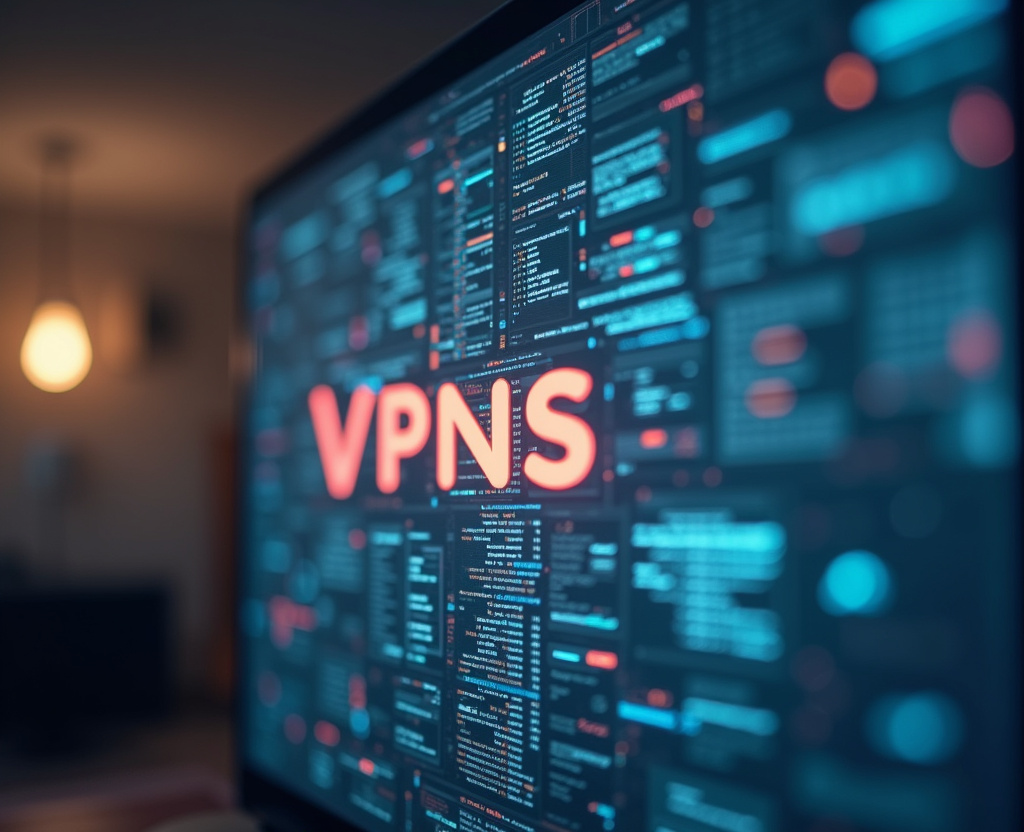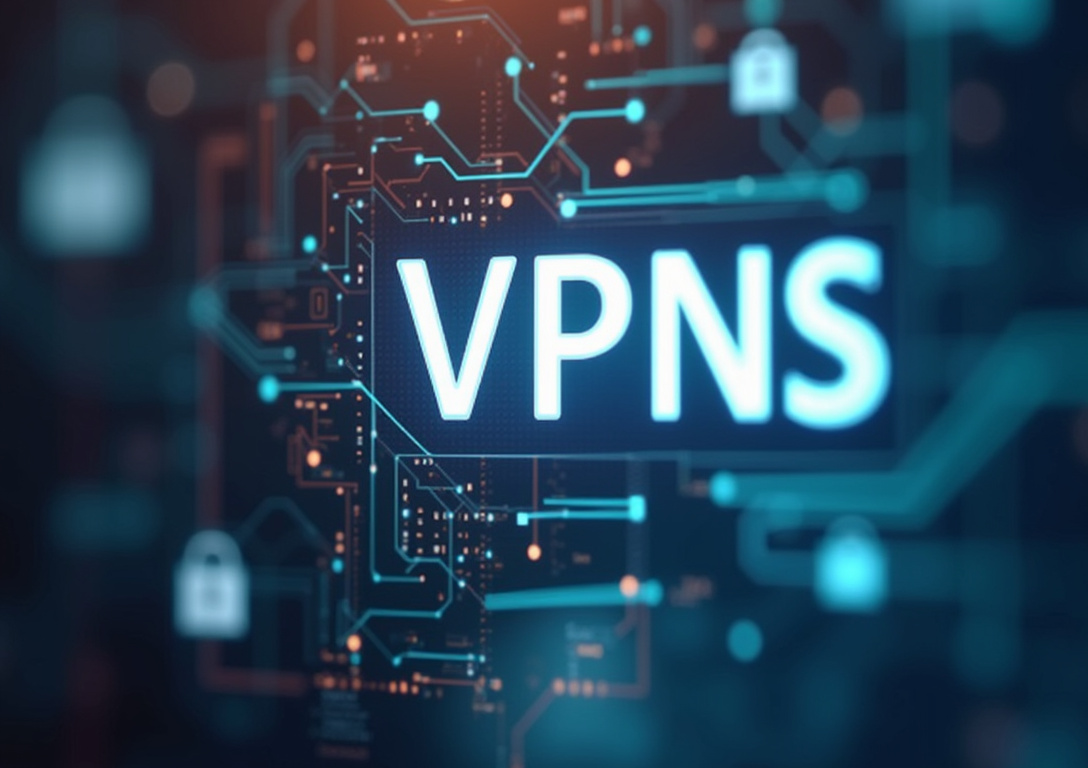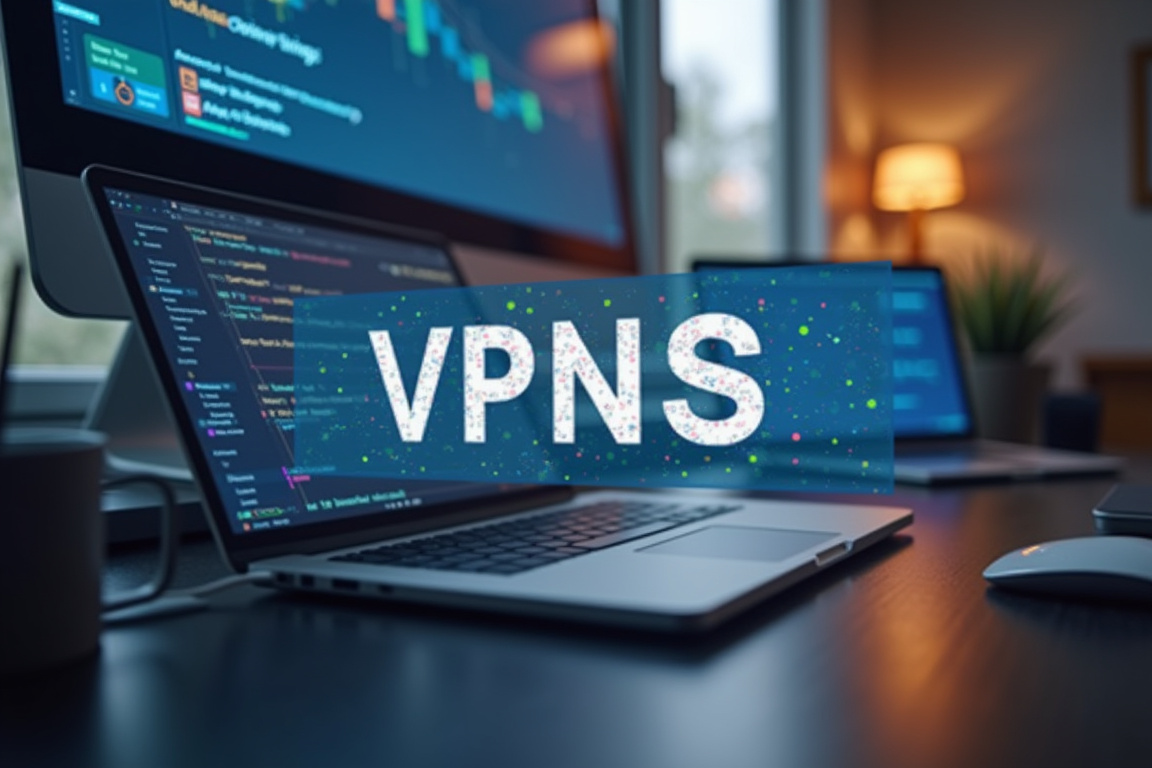VPNs for Pet Owners: Enhance Home Security Systems
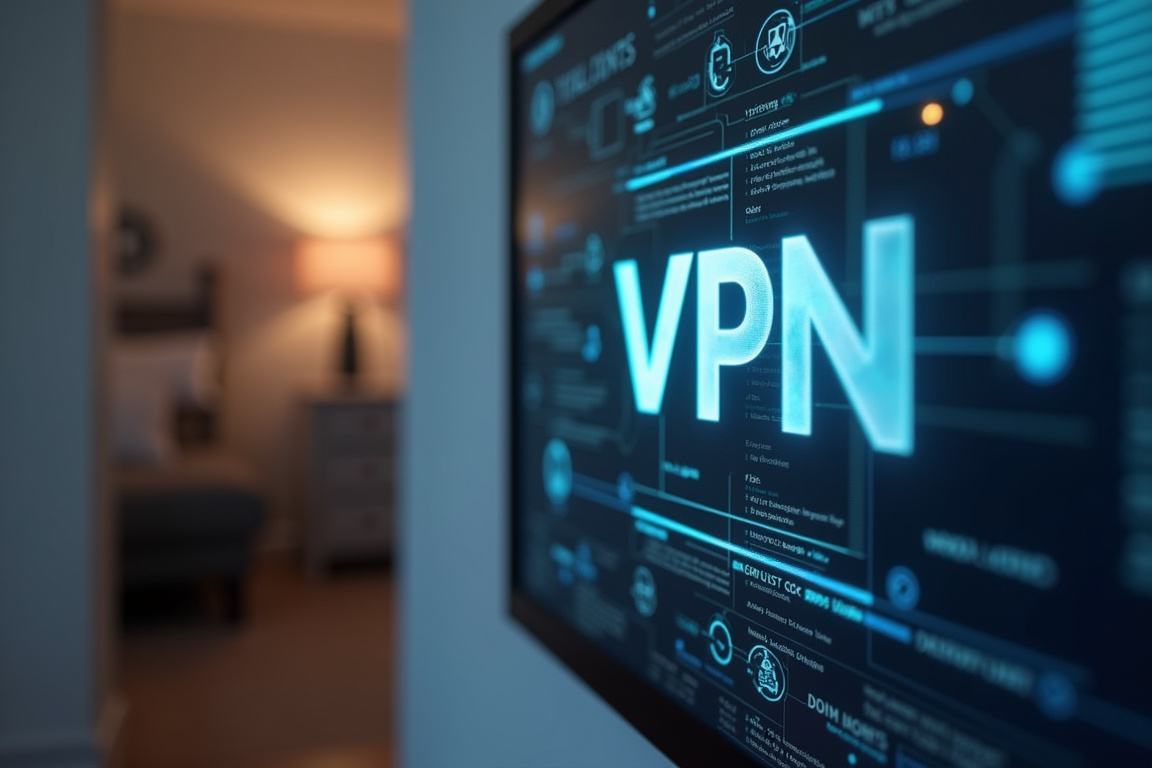
Table of Contents
VPNs for Pet Owners: Enhance Home Security Systems
In today's increasingly interconnected world, the concept of home extends far beyond the physical structure and encompasses the digital realm as well. The surge in smart home devices, coupled with the ever-present threat of cybercrime, has made securing our digital lives as crucial as locking our front doors. For pet owners, this digital extension is particularly important, as modern home security systems often integrate pet monitoring, automated feeding, and interactive play features, all reliant on a robust digital network.
Imagine the convenience of checking in on your furry friend from anywhere in the world, ensuring they're safe, happy, and well-fed, all through your smartphone. However, this convenience comes with a responsibility, demanding a proactive approach to safeguard these connected devices from potential vulnerabilities. Consequently, ensuring the safety and security of these systems becomes paramount, not only for the well-being of our beloved companions but also for the overall protection of our homes, protecting us from prying eyes that exploit vulnerabilities.
This is where the strategic implementation of a (Virtual Private Network) emerges as a powerful tool to and fortify against potential cyber threats. A VPN acts as a digital shield, creating a secure and encrypted tunnel for all internet traffic emanating from your home network, thereby protecting the sensitive data transmitted by your security devices, including pet cameras, smart feeders, and remote control systems. Think of it as building a private road for your internet data, ensuring it's protected as it flows between your devices and the outside world instead of going through a highway that most people can acces..
These devices, while providing convenience and peace of mind, are often vulnerable to hacking and unauthorized access if left unprotected. In simpler terms, leaving your pet camera without a VPN is like leaving your front door unlocked. A hacker could gain access to the camera feed, monitor your home, and even potentially manipulate other connected devices.
By channeling all data through a VPN server, your IP address is masked, making it significantly harder for malicious actors to pinpoint your location and exploit vulnerabilities in your system. The result is an encompassing strategy that safeguards not only your smart home devices dedicated to pet care but also every other connected device within your household, ensuring a comprehensive approach to . Protecting your home wi-fi network becomes key to protecting it from outside intrusions that can comprise your sensible data.
Furthermore, a VPN can bypass geographical restrictions, granting access to region-locked features or services that may be beneficial for remote pet monitoring or accessing specific databases related to pet health and safety. For example, a subscription to a pet-related streaming service might only be available in certain countries. A VPN allows you to bypass these restrictions and access the content from anywhere in the world.
The peace of mind that comes from knowing your digital infrastructure is fortified against potential intrusion allows pet owners to fully enjoy the benefits of their smart home systems without compromising their privacy or security. Before delving into setting up a VPN, it's vital to understand how it fundamentally works; imagine a direct, secure tunnel created between your home network and the internet, rendering anything transmitted within the tunnel unreadable to outside observers. This is unlike a traditional unsecured connection, where your data travels in a more exposed manner, vulnerable to interception or manipulation.
Protecting yourself from those vulnerabilities is protecting your home. A home VPN thus becomes a cornerstone of a comprehensive security architecture in today's age of digital interconnectedness. The beauty of its implementation lies in its adaptability and accessibility.
It's not limited to tech-savvy users; modern VPN solutions are streamlined and user-friendly, often providing intuitive interfaces that handle all the technical complications behind the scenes. In simple terms, it serves as a virtual bodyguard for all of your online activities and smart home integrations. For pet owners, a system provides an extra layer of assurance that their beloved companions are safe and sound, even when they aren't physically there.
The integration of a VPN ensures that the digital eyes and ears monitoring your pets won't be compromised, maintaining the integrity of your overall home security strategies and your peace of mind while outside your home. It also protects your private data from hackers entering your computers by using your home's wi-fi network. Your wi-fi network, once having a good protecting, safequards even your private data.
home VPN
The core benefit of employing a VPN for home security, especially for pet owners, lies in its capacity to encrypt all outbound and inbound data. This encryption process essentially renders all data unintelligible to potential eavesdroppers, transforming your internet traffic into a scrambled mess that is exceedingly difficult to decipher. Imagine the data transmitted from a pet camera, potentially containing sensitive information about your home layout, pet's routines, and even your family's movements.
Without a VPN, this data could be intercepted, leaving your home and your pet vulnerable to sophisticated attacks. Think of a hacker accessing your pet camera feed and obtaining a detailed map of your home's interior, daily schedules, and security weak points. This information could then be used to plan a burglary or even target your pet.
A VPN addresses this vulnerability by adding a robust layer of encryption, shielding your data from prying eyes and drastically diminishing the risk of unauthorized access, which can keep your house much more safer. Furthermore, VPNs provide a crucial layer of anonymity by masking your device's IP address. Your IP address, similar to a physical postal address, is a unique identifier that can be used to track your online activity and pinpoint your geographical location.
By routing your internet traffic through a VPN server, your true IP address is concealed and replaced with the IP address of the VPN server. This prevents websites, third-party trackers, and potential hackers from identifying your actual location, adding a vital layer of privacy to your online presence. This is particularly important for pet owners who utilize location-based services for tracking lost pets or automated pet care devices.
Imagine you've invested in a GPS tracker for your dog's collar to ensure their safety in case they escape the yard. Without a VPN, the data transmitted by this tracker could be intercepted, exposing your dog's location and your home address to malicious actors. A masked IP address minimizes the risk of your location data being compromised or exploited.
Think of all those benefits as extra safety layers for your pets that ensure that they are safe and sound. A further advantage of a solution is its ability to secure your connection when using public Wi-Fi networks. These networks, commonly found in coffee shops, airports, and other public spaces, are notoriously insecure and often targeted by hackers seeking access to unprotected devices.
When connecting to a public Wi-Fi network without a VPN, your data is essentially exposed to anyone else connected to the same network. This poses a significant risk if you use public Wi-Fi to remotely monitor your pet through a pet camera or manage automated pet care systems. Imagine you are traveling and rely on a public Wi-Fi network to check on your cat using a smart pet feeder.
Without a VPN, a hacker could intercept your login credentials and gain control of the feeder, potentially dispensing excessive amounts of food or even disrupting your pet's regular feeding schedule. A VPN encrypts your data transmitted over the public Wi-Fi network, preventing hackers from intercepting your login credentials, personal information, or any other sensitive data. Considering the convenience of accessing and controlling pet monitoring devices remotely, using a VPN is fundamental on unsecured public networks and protects the .
In summary, you ensure that you can check your pets in all locations regardless of how safe is the network youre connecting into. Therefore, beyond just offering protection for your smart home devices, a VPN provides comprehensive for all aspects of your online activities, safeguarding against a wide range of cyber threats, reinforcing for pet owners everywhere. This holistic security guarantees all aspects of your digital life get an added layer of assurance and even benefits your pets on the process, being a very worthy investment that gives you the best security possible.
enhance security
Selecting the right VPN solution to for your smart home and pet-related devices requires careful consideration of several essential factors. Primarily, prioritize VPN providers with robust encryption protocols, such as AES-256, which is currently considered one of the strongest encryption standards available. Ensure the VPN uses a secure VPN protocol like OpenVPN or WireGuard, renowned for their security and speed.
Think of these protocols as the structural foundation of your secure tunnel - a weak foundation can compromise the entire system. A VPN using outdated protocols is like building a fortress with flimsy materials, it might look impressive but offers little real protection. Always delve into the technical specifications of any VPN you are considering to ensure it utilizes industry-best practices.
Secondly, scrutinize the VPN provider's logging policy. Opt for a provider with a strict "no-logs" policy, meaning they do not collect or store any data about your online activity, including your browsing history, IP address, or connection timestamps. This ensures your privacy is fully protected and that your data cannot be accessed by third parties, even under legal duress.
Envision a VPN provider that keeps logs of your online activity - this is akin to having a security guard who meticulously records everything you do within your own home. While they might have the best intentions, this detailed record creates a significant privacy risk in the event of a data breach or legal inquiry. The must act like a ghost in the system, protecting you and letting you go unseen.
Reading their privacy policies will lead you to safety. Another critical factor to evaluate is the VPN's server network. A larger server network generally translates to faster connection speeds and greater flexibility in bypassing geo-restrictions.
A wide distribution of servers across different geographical locations also allows you to choose a server closer to your actual location, which can improve performance. This is particularly relevant when you're accessing pet monitoring devices from abroad. Imagine you are traveling in Europe and want to check on your pet camera back home in the United States.
Connecting to a VPN server in the US will not only secure your connection but also ensure optimal streaming speeds for your camera feed making your access more reliable. Consider the user-friendliness of the VPN application. Choose a provider that offers intuitive interfaces and easy-to-use apps for all of your devices, including your computer, smartphone, and even your smart home hub.
A complicated or clunky VPN application can be a barrier to adoption, even for tech-savvy users. Streamlined apps, ease of use, and straightforward operation are the way to go and a feature that is worth considering. Finally, don't neglect customer support.
A reliable VPN provider should offer responsive and helpful customer support, either through live chat, email, or phone. This ensures that you can quickly resolve any technical issues or configuration problems that may arise. Look for providers whose customer support is available 24/7, this ensures you don't have to waste time waiting for customer service.
A quality VPN provider will go a long way in making sure your is up to par and keeping your mind at ease. If all of these factors are taken into account, your will not only cover all devices but safeguard your privacy and ensure you are protected with the best tools. With time and research, your will reach a high level.
home VPN
Setting up a for optimal security of your smart home devices is a straightforward process, especially with the user-friendly interfaces of modern VPN applications. There are generally two main approaches to consider: installing the VPN software directly on each device or configuring the VPN on your router, protecting all devices connected to your network. Installing VPN software on each device offers granular control, allowing you to customize settings and preferences for individual devices.
This is useful if you want to use different VPN servers for different devices or if some of your devices are not compatible with VPN software installed on the router. For instance, you might want to use a server closer to your location for streaming services on your smart TV, while using a different server to access region-locked features on your pet monitoring devices. However, manually configuring each device can be time-consuming and require some technical expertise.
Ensuring that VPN is correctly configured on a large number of devices at home, might become an issue. The second, and often more efficient approach, is to configure the VPN directly on your router. This creates a secure tunnel for all traffic passing through your home network, protecting every connected device, including those that don't natively support VPN software.
Think of it as building a secure gateway for your entire home network. Everything that passes through that gateway is automatically protected. This approach simplifies management and ensures that all your devices, including your pet cameras, smart feeders, and even your smart bulbs, are constantly protected without requiring any manual configuration on each individual device.
Before setting up a VPN on your router, make sure that your router is compatible with VPN client software. Many modern routers support VPN client functionality, but older models may require firmware updates or custom firmware installations, such as DD-WRT or Tomato. Remember the importance of checking your router´s compatibility to avoid running into hardware incompatibilities.
After confirming compatibility, the setup process generally involves logging into your router's administration panel, configuring the VPN client settings with your VPN provider's credentials, and enabling the VPN connection. Most VPN providers offer detailed guides and tutorials on how to set up their service on different router models. Correctly following these instructions will ensure VPN is up and running, and your is at its peak.
Once the VPN is configured on your router, you can verify that it is working correctly by checking your IP address on a website like "whatismyip.com." If the website shows the IP address of your VPN server, then your connection is successfully being routed through the VPN. A correctly implemented VPN guarantees your . Regularly check your router´s VPN configuration, making sure everything is flowing as it should.
Regardless of the setup method you choose, it's important to regularly monitor your VPN connection to ensure it remains active and secure. Set up alerts or notifications to be notified if the VPN connection drops, allowing you to quickly reconnect and maintain continuous protection. Make sure you're following the providers' instructions, and your data and loved ones are protected by any potential cyberattack.
Following these guidelines will give your the edge you and your family seeks.
home VPN
Beyond the initial setup, maintaining a secure environment requires ongoing vigilance and proactive maintenance. Regularly updating your VPN software and router firmware is crucial to patch security vulnerabilities and ensure compatibility with the latest security protocols. Software developers constantly identify and address security flaws, and updates contain vital fixes that can protect your network from emerging threats.
Ignoring these updates is like leaving a window open for hackers to walk through. Set up automatic updates whenever possible to ensure that you are always running the latest versions of your software. Another important aspect of VPN maintenance is regularly reviewing your VPN's configuration settings.
Double-check that your encryption protocols are up-to-date, your kill switch is enabled (which automatically disconnects your internet connection if the VPN connection drops), and your DNS leak protection is active. These settings are essential for maintaining the security and privacy of your connection. Failing to maintain these settings is like neglecting the maintenance of your car - eventually, it will break down and leave you stranded.
Periodically test your VPN connection to ensure that it is working correctly. You can use online tools to check your IP address, DNS servers, and WebRTC leaks to verify that your VPN is effectively masking your identity and protecting your data providing top . This includes features designed to stop DNS leaks and other IP address revealing vulnerabilities that diminish your .
This step will help determine whether the network is actively covering as aspect of your digital life. For pet owners relying on smart home devices for remote monitoring, consider segmenting your network to isolate your pet-related devices from other critical systems. This can be achieved by creating a separate guest Wi-Fi network for your pet cameras and smart feeders, preventing hackers from gaining access to your main network if they compromise a pet-related device.
Envision your home network as a building with multiple rooms; segmenting your network is like creating separate entrances and security systems for each room. If one room is compromised, the other rooms remain secure. To truly , educate yourself and your family about common cybersecurity threats and best practices.
Phishing scams, malware, and weak passwords are all potential risks that can compromise your VPN security. Teach your family members how to recognize and avoid these threats and encourage them to use strong, unique passwords for all their online accounts creating a safe environment for everyone. In general, remember that cybersecurity is not a one-time fix, it is an ongoing proccess that requires proactive measures.
As new threats emerge, it's essential to stay informed and adapt your security practices accordingly. By following these guidelines, you can create a robust and secure environment that protects your smart home devices, your personal data, and most importantly, your beloved pets, giving you peace of mind and complete security.
Stay Updated
Get the latest VPN news, tips, and exclusive deals to your inbox.
